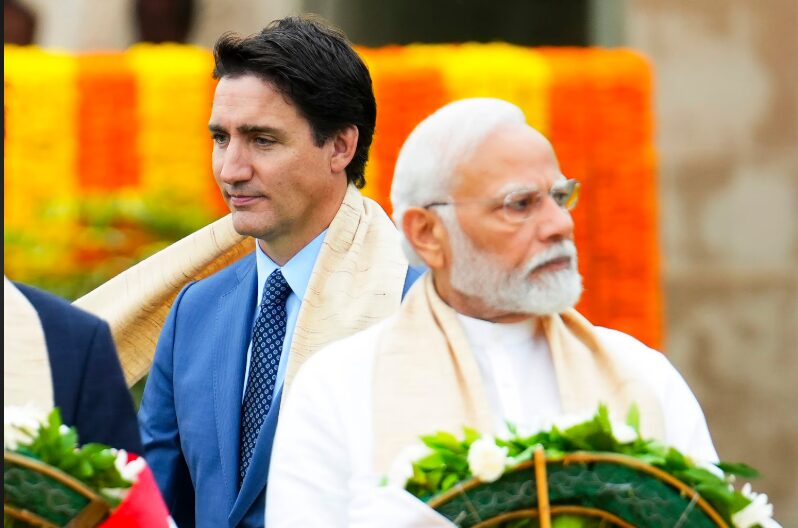After going all out against India, the Indian government and Indian PM Narendra Modi; Canada is now rushing to press the reset button. Trudeau is going from confrontation to conciliation with New Delhi
For instance, see this: Trudeau government fact-checked one of its own mouthpieces.
Ottawa rejected a contentious report published by The Globe and Mail alleging that Indian leaders, including Prime Minister Narendra Modi and Foreign Affairs Minister S. Jaishankar, were aware of plans to kill Nijjar—a claim vehemently denied by New Delhi.
Nijjar was a Khalistani separatist leader who was gunned down in Canada last year. He was a designated terrorist in India and Canada previously linked his death with Indian government officials.
Following a robust rebuttal from India, Canada swiftly back-tracked. Nathalie G. Drouin, Trudeau’s National Security Advisor, dismissed the report as “speculative and inaccurate,” emphasizing the absence of concrete evidence linking top Indian ministers to the shooting incident.
This public distancing is more than mere damage control; it reflects a broader shift in Trudeau administration, the need to de-escalate tensions with India. The diplomatic fallout from the Nijjar case had already led to a series of retaliatory actions, including India canceling several consular camps in Canada, citing security concerns.
The cancellation of consular camps—particularly in the wake of violent incidents involving Khalistani mobs—further strained ties. The attack on a Hindu temple in Brampton during a consular event revealed the inadequacies of Canadian law enforcement in ensuring the safety of Indian diplomatic activities. Such incidents have greatly embarrassed the Trudeau government domestically as well as internationally.
Talking of embarrassments, Trump’s victory is another one for Trudeau. With Biden gone, Trudeau loses a key ally who shared similar liberal values and approaches to diplomacy. Trump is a tough nut to crack. He has vowed to increase import tariffs, which could literally implode the economy of Canada, whose 75 per cent exports are consumed by the US.
Then there are distressing developments from Delhi too.
India is one of the largest importers of Canadian lentils, a staple item crucial to maintaining food inflation in check. Despite the diplomatic strain, trade flows between India and Canada had largely been uninterrupted. But that is changing now
The recent tensions have prompted India to diversify its import sources, turning increasingly to Australia. This shift, while subtle, serves as a warning to Canada: continued diplomatic hostility could result in significant economic losses.
Trudeau’s recent moves to de-escalate tensions may be influenced by these reasons. With Trump already in White House, Trudeau is in no position to sustain the wrath of another major economy.
Modi’s India, with its growing economic and geopolitical might, represents both an opportunity and a need for Canada. Trudeau’s recent conciliatory gestures can be seen as an acknowledgment of this reality—a pragmatic pivot aimed at securing Canada’s interests in a rapidly shifting global order.
The Nijjar case stirred strong sentiments in Ottawa, because Khalistanis make for a huge voter base for Trudeau. However, maintaining a confrontational stance toward India risks broader diplomatic and economic fallout. Trudeau now looks desperate to press the reset button.
How will India respond? Under Trudeau, a reconciliation is nearly impossible given the kind of bad blood Trudeau shares with Modi. India is highly unlikely to change its position on Canada until and unless Trudeau vacates the PM office, which will only happen the next year.
